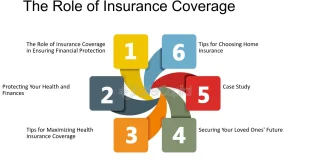Navigating the complexities of health insurance can be challenging, but understanding how to use your health insurance effectively is crucial for maximizing benefits and minimizing costs. This article provides practical strategies to help you make the most of your health insurance plan.
1. Understand Your Policy
The first step to using your health insurance effectively is to thoroughly understand your policy.
Key Components to Review:
- Coverage Details: Familiarize yourself with what services are covered, including preventive care, specialist visits, and emergency services.
- Exclusions: Identify any services that are not covered by your plan to avoid unexpected costs.
- Network Providers: Check which healthcare providers are in-network to ensure you receive the highest level of coverage and lower out-of-pocket costs.
2. Know Your Costs
Understanding the costs associated with your health insurance plan can help you budget and make informed decisions about your care.
Cost Elements to Consider:
- Premiums: This is the amount you pay monthly for your insurance coverage.
- Deductibles: Know how much you need to spend out of pocket before your insurance starts covering costs.
- Copayments and Coinsurance: Be aware of the fixed amounts (copays) or percentage of costs (coinsurance) you must pay when receiving care.
3. Utilize Preventive Services
Many health insurance plans cover preventive services at no cost to you. Taking advantage of these services can help you maintain your health and catch potential issues early.
Preventive Services to Consider:
- Annual Check-Ups: Schedule regular check-ups with your primary care doctor to monitor your health.
- Screenings and Vaccinations: Stay up to date on recommended screenings and vaccinations, which are often fully covered.
4. Stay In-Network
Using in-network providers is one of the most effective ways to save money on healthcare costs.
Benefits of Staying In-Network:
- Lower Costs: In-network providers have negotiated rates with your insurance company, resulting in lower out-of-pocket expenses.
- Simplified Claims Process: When you see an in-network provider, they often handle the claims process directly with your insurer, reducing your administrative burden.
5. Keep Good Records
Maintaining organized records of your healthcare visits, treatments, and insurance communications can help you manage your health insurance more effectively.
Record-Keeping Tips:
- Track Visits and Costs: Keep a log of your medical appointments, services rendered, and any associated costs.
- Save Documentation: Retain copies of your insurance cards, policy documents, and any correspondence with your insurer.
6. Ask Questions
Don’t hesitate to ask questions about your health insurance plan, whether it’s about coverage specifics or billing issues.
Key Questions to Ask:
- What services are covered?
- What is my deductible?
- How much will I pay for a specific service?
- What do I do if I receive a bill that seems incorrect?
7. Plan for Emergencies
Having a plan for medical emergencies can help you navigate care more effectively and reduce stress.
Emergency Preparedness Tips:
- Know Your Coverage: Understand what your insurance covers in an emergency, including ambulance services and emergency room visits.
- Find Urgent Care Options: Identify nearby urgent care centers for non-life-threatening emergencies to avoid higher costs associated with emergency room visits.
8. Review Your Plan Annually
Health insurance plans can change from year to year, so it’s important to review your plan annually.
Annual Review Steps:
- Assess Your Needs: Consider any changes in your health, family situation, or financial circumstances that might affect your coverage needs.
- Compare Plans: If your plan has changed, compare it with other options available to ensure you are getting the best coverage for your needs.
 Conclusion
Conclusion
Using your health insurance effectively requires a proactive approach and a thorough understanding of your policy. By familiarizing yourself with your coverage, costs, and available services, you can make informed decisions about your healthcare. Taking advantage of preventive services, staying in-network, and maintaining good records will further enhance your experience. By being proactive and informed, you can navigate the complexities of health insurance, ensuring that you receive the care you need without unnecessary financial strain.


